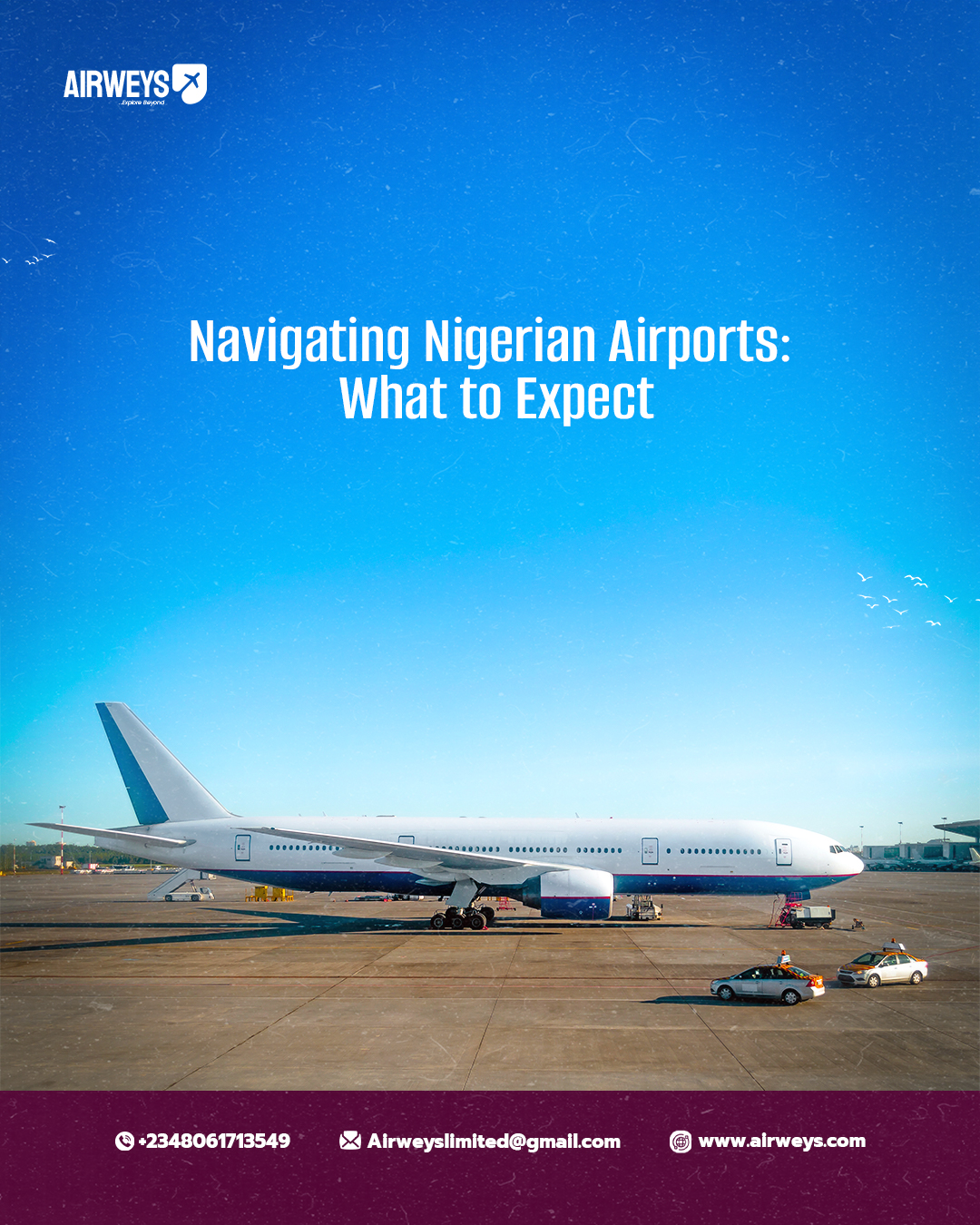Traveling through Nigerian airports can be an adventure on its own. Whether you are arriving for the first time or are a seasoned traveler within Nigeria, understanding what to expect can make your journey more comfortable and less stressful. From Lagos to Abuja and beyond, Nigerian airports offer a unique blend of vibrant culture, bustling activity, and the occasional challenge. Here’s what you need to know to navigate them with ease.
Before You Go: Preparation is Key
Timeliness is critical when traveling through Nigerian airports. For international flights, it is advisable to arrive at least three hours before departure; for domestic flights, one and a half to two hours is often sufficient. Airports like Murtala Muhammed International Airport in Lagos and Nnamdi Azikiwe International Airport in Abuja are busy hubs where early arrival helps you manage queues at check-in, security, and immigration checkpoints without undue pressure.
Before heading out, confirm your flight status via the airline’s website or trusted tracking apps. Flight schedules in Nigeria can sometimes change with little notice, especially during the rainy season or periods of high traffic. It is also essential to organize all your travel documents in advance. Ensure your passport has at least six months’ validity, your visa (if applicable) is intact, and that you have any health clearance documents required for travel.
At the Airport: What to Expect
Security checks are thorough and can occur at multiple points. Travelers should be prepared to remove electronics and liquids from their bags during screening and wear easily removable shoes to speed up the process. Cooperation with airport officials and maintaining a calm, respectful attitude can make a noticeable difference in your experience.
At immigration, officers may ask routine questions about your travel purpose. Answer directly and politely. Occasionally, travelers encounter informal requests for tips or “facilitation fees.” In such situations, it is perfectly acceptable to decline politely without confrontation.
Currency exchange services are available at most airports, but it is advisable to exchange a small amount beforehand or withdraw cash at an ATM, as cash remains the dominant medium for small transactions in Nigeria. Not all vendors accept cards, particularly in domestic terminals.
Baggage and Packing Tips
Domestic flights in Nigeria often have stricter baggage limits compared to international standards. Check with your airline regarding baggage allowances to avoid last-minute surprises. Overweight luggage usually attracts extra charges — typically about ₦500 per kilogram over the limit.
When packing, keep essentials such as medications, valuables, and important documents in your carry-on bag. Delays in checked luggage are not uncommon, so it is wise to have immediate necessities within reach.
Amenities and Services
Most major airports in Nigeria now offer upgraded amenities. Lounge access, whether complimentary via business class tickets, loyalty programs, or available for a fee, can be a pleasant escape from the busy terminal environment, providing refreshments, Wi-Fi, and a quieter atmosphere.
Dining options have also improved, featuring a variety of local and international cuisine, although prices can be higher than in the city. Duty-free shops at international terminals offer perfumes, spirits, and souvenirs, albeit at premium prices.
Ground Transportation: Planning Your Exit
Upon arrival, it is recommended to arrange ground transportation in advance. Official airport taxis are available, but it is prudent to negotiate and agree on fares before boarding. Alternatively, rideshare apps like Bolt and Uber operate in cities like Lagos and Abuja, offering more transparent pricing.
In Abuja, travelers can also take advantage of the light rail system, which connects the airport to the city center — a modern and efficient option compared to traditional taxis.
Major Airports Overview
Murtala Muhammed International Airport (MMIA), Lagos, remains Nigeria’s busiest aviation hub. Recent renovations have improved passenger flow, and a new terminal now offers modernized services, although travelers should still anticipate some congestion during peak hours.
Nnamdi Azikiwe International Airport (NAIA), Abuja, is often praised for a smoother immigration experience and modern facilities. The newer terminal and improved transport links make navigating the airport relatively stress-free.
Other airports, like Port Harcourt International Airport and Akanu Ibiam International Airport in Enugu, are also improving steadily, but travelers should manage expectations around infrastructure and service levels outside Lagos and Abuja.
Final Tips for a Smooth Experience
Stay updated on travel advisories or health regulations related to your journey. Having local emergency numbers and your country’s embassy contact details at hand is wise.
Nigerians are renowned for their warmth and hospitality. A friendly demeanor, patience, and a smile will often open more doors than frustration or sternness.
Above all, understanding the unique rhythm of Nigerian airports — a vibrant mix of order and organized chaos — can turn what could be an overwhelming experience into a memorable part of your journey.







